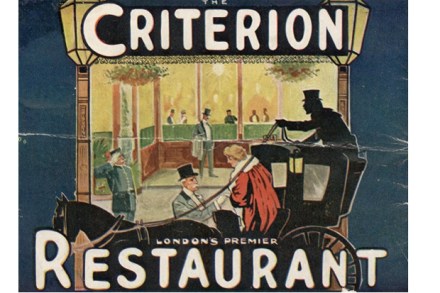Un-Italian job
I have been waiting, like a heroine in fiction, for the specialist lasagne restaurant. London has long been heading this way for the benefit of the consumer-simpleton who can only process one piece of information at a time. It is clearly a response to the glut of choice in late capitalism, and so close to Karl Marx’s home in Dean Street that I can almost feel his cackling shadow. Less choice for your aching head, child, but isn’t it really more choice? The choice not to choose? That phenomenon brought us the pop-up Cadbury’s Creme Egg restaurant, which only served food made with Cadbury’s Creme Eggs. Because people are mad,

















